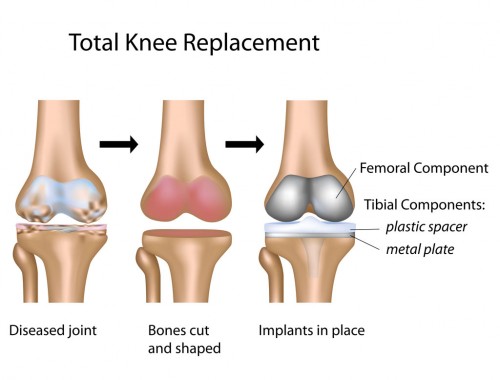Introduction:
Joint pain and mobility issues can significantly impact one's quality of life, hindering daily activities and diminishing overall well-being. In such cases, seeking the expertise of a joint replacement surgeon becomes paramount. But what exactly does a joint replacement surgeon do, and how do they help individuals regain mobility and alleviate pain? Let's delve into the intricacies of this specialized field.
What is a Joint Replacement Surgeon?
A joint replacement surgeon is a highly skilled medical professional specializing in the diagnosis, treatment, and surgical management of conditions affecting the joints, particularly those
necessitating joint replacement procedures. These surgeons undergo extensive training, typically in orthopedic surgery, focusing on the musculoskeletal system and its ailments.
Roles and Responsibilities:
1. Diagnosis: Joint replacement surgeons begin by conducting thorough evaluations to diagnose the underlying cause of joint pain and dysfunction. This involves comprehensive physical examinations, review of medical history, and often diagnostic imaging such as X-rays, MRI scans, or CT scans. Accurate diagnosis is crucial for determining the most appropriate course of treatment.
2. Treatment Planning: Once a diagnosis is established, joint replacement surgeons collaborate with patients to develop personalized treatment plans tailored to their unique needs and goals. While surgery may be necessary in some cases, surgeons also explore non-surgical options such as medication, physical therapy, injections, or other interventions to alleviate symptoms and improve joint function.
3. Surgical Expertise: When conservative treatments prove ineffective or the joint damage is severe, surgical intervention may be recommended. Joint replacement surgeons specialize in various types of joint replacement surgeries, including total hip replacement, total knee replacement, partial knee replacement, and shoulder replacement, among others. These procedures involve removing damaged or diseased joint surfaces and replacing them with artificial implants made of metal, plastic, or ceramic materials.
4. Rehabilitation and Follow-Up: Successful joint replacement surgery is not merely about the operation itself but also encompasses post-operative care and rehabilitation. Joint replacement surgeons work closely with physical therapists and other healthcare professionals to facilitate recovery, optimize mobility, and ensure a smooth transition back to daily activities. They monitor patients' progress through regular follow-up appointments, addressing any concerns and adjusting treatment plans as needed.
Expertise and Specialization:
Joint replacement surgery requires a high level of expertise and precision due to the complexity of the procedures involved. Surgeons specializing in this field undergo specialized training and often pursue fellowships or advanced certifications in joint replacement surgery to hone their skills further. Their proficiency in surgical techniques, along with a deep understanding of biomechanics and implant materials, enables them to deliver optimal outcomes for their patients.
Impact on Quality of Life:
The impact of joint replacement surgery extends far beyond the operating room. For many individuals suffering from debilitating joint pain and stiffness, these procedures offer a new lease on life, restoring mobility, reducing pain, and improving overall quality of life. Whether it's being able to walk without discomfort, engage in favorite activities, or simply enjoy a better night's sleep, the benefits of joint replacement surgery can be truly life-changing.
Conclusion:
In conclusion, a joint replacement surgeon plays a vital role in the management of joint disorders, offering expertise in diagnosis, treatment planning, surgical intervention, and post-operative care. Through their specialized knowledge and skillful hands, these professionals help countless individuals regain mobility, independence, and joy in everyday life. If you're experiencing persistent joint pain or limited mobility, consulting with a joint replacement surgeon could be the first step toward reclaiming your freedom of movement and enhancing your well-being.






Comments